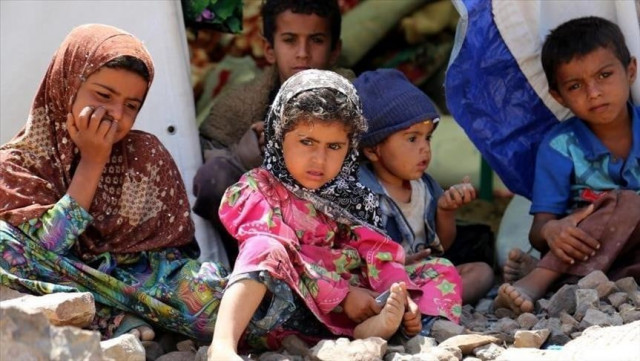Article 35 provides ‘State should protect child'
SC notes juvenile justice system finds its ideological roots in Constitution

The Supreme Court has observed that Article 35 of the Constitution provided that the State should protect the child.
It added that Article 25(3) empowered the State to make special provisions for the protection of children even if it discriminates against the adults.
“The juvenile justice system also finds its ideological roots in the Constitution,” read a six-page order authored by Justice Syed Mansoor Ali Shah while granting post-arrest bail in a murder case under Section 6(5) of the Juvenile Justice System 2018.
A division bench of the apex court led by Justice Shah further noted that Pakistan was a signatory to the United Nations Convention on the Rights of Child (UNCRC) and was thus under an international obligation to take special measures for the protection and rehabilitation of the juveniles who come in conflict with law.
"It was for the compliance of this constitutional mandate and for the fulfilment of this international obligation that the Act was enacted by the legislature of Pakistan. The main object of the enactment of the Act is to modify and amend the law relating to the criminal justice system for juveniles by providing special focus on disposal of their cases through diversion and social integration for their rehabilitation.”
The court noted that Article 37 (b) of the UNCRC provided that the process of arrest, detention or imprisonment of a juvenile is to be used only as a measure of last resort and for the shortest appropriate period of time, while para 28 of the General Comments of the Committee on the Rights of the Child (CRC)12, which interprets Article 37(b), says that the use of deprivation of liberty, and in particular pre-trial detention, is to be strictly limited. Section 6 of the Act that deals with the release of juveniles on bail pending his trial actualises Article 37 (b) of the UNCRC.”
The judgment further noted that the conceptual framework of the juvenile justice system, which has been carved out of the general criminal justice system.
“Juvenile justice system is not retributive in character, it is primarily rehabilitative and restorative. Restorative justice is ‘a theory of justice that emphasises repairing the harm caused by criminal
Behavior’. It rests on the 'best interest of the child’ and ensures fulfillment of [their] basic rights and needs, identity, social well-being, physical, emotional and pscyhological development. This therapeutic underpinning is the central theme of the juvenile justice system.”
The verdict noted that juvenile courts, by their very nature, were designed to be more therapeutic than the adult criminal justice system.
“Juveniles differ from adults in their development and their needs.”
The SC noted that in the present case, the [lower] courts had failed to appreciate the scheme of the Act
“[And in particular that of Section 6(5) of the Act, which has been enacted to counter the negative effects of long-term detention on the juveniles in jails.”
"The [lower] courts below have thus committed a patent error of law by not allowing the benefit of Section 6(5) of the Act to the petitioner, when the delay in completion of the trial was not attributable to any act or omission or of any other person acting on his behalf.”
The SC therefore converted the petition into an appeal and allowed it. “The impugned order is set aside and the application for post arrest bail of the petitioner is accepted under Section 6(5) of the Act on the ground of delay in completion of the trial exceeding a period of six months since the date of his arrest in the case. The petitioner is admitted to post-arrest bail subject to his furnishing bail bond in the sum of Rs500,000 with two sureties in the like amount to the satisfaction of the trial court.”
The court also noted that in the present case, the petitioner was arrested on March 18, 2021 and he had been detained for a continuous period exceeding six months since his detention and his trial had not been completed when he applied for the relief of bail before the trial court and the high court. “The trial court declined the relief of bail to the petitioner without discussing the fact who was at fault for the delay in completion of the trial.”
The SC observed that while the high court had noted that the delay occurred due to failure of the investigating officer in timely submission of the final report under Section 173 of the Code of Criminal Procedure 1898.
In the latest report , it added, submitted by the trial court, dated May 25, 2022, on requisition of SC, it has been reported that the delay has occurred due to filing of a private complaint by the complainant.
“The delay in completion of the trial is thus not attributable to any act or omission of the petitioner or any other person acting on his behalf, and the petitioner is therefore entitled to be released on bail, as of right, under Section 6(5) of the Act.”
The SC told the trial court to conclude the trial of the petitioner expeditiously as undertaken by it in the report submitted to this court.



















COMMENTS
Comments are moderated and generally will be posted if they are on-topic and not abusive.
For more information, please see our Comments FAQ